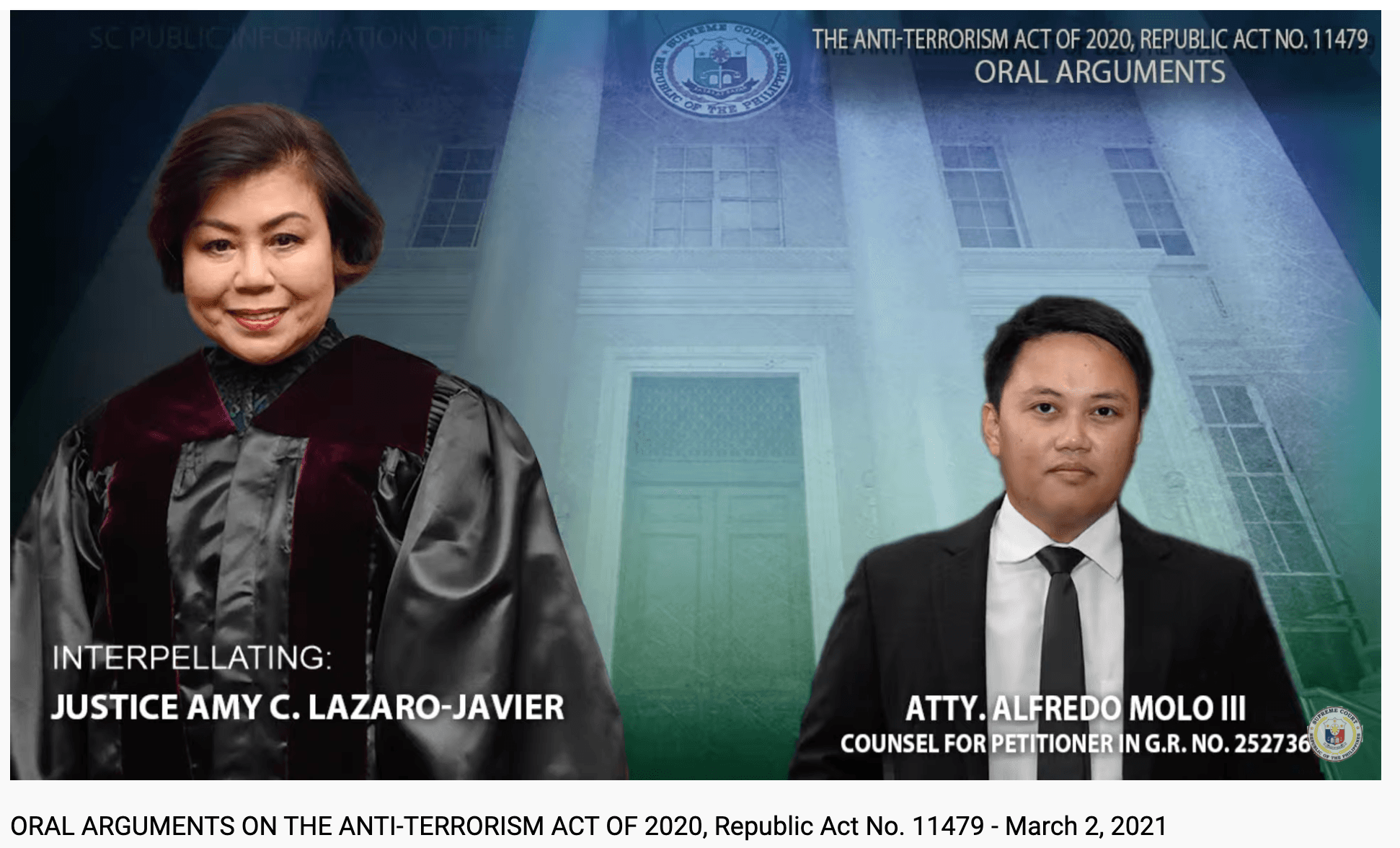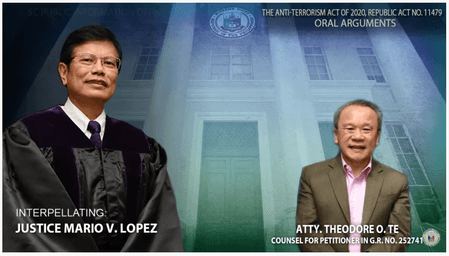SUMMARY
This is AI generated summarization, which may have errors. For context, always refer to the full article.

Supreme Court justices debated on Day 4 of the anti-terror law oral arguments the need to balance upholding personal freedoms and protecting the country’s national security.
Petitioners argued that the feared law violates as many as 15 out of the 22 items in the Bill of Rights, such as rights to privacy and due process.
“You favor individual liberty over the security, the life, the very survival of our country and our people?” Associate Justice Amy Lazaro Javier asked University of the Philippines (UP) Law Professor John Molo, to kickstart the interpellations on Tuesday, March 2.
It was a recurring theme in the last 4 days of oral arguments, as some justices grilled petitioners on the practical necessity of the tough provisions of the feared law.
Molo answered emotionally, saying his father was a soldier and his grandfather a local police chief in Bicol, both of whom had fought communist rebels.
“My father is a soldier who fought in Leyte and the jungles of Sulu, who saw his fellow soldiers die at the hands of the New People’s Army (NPA). I will never favor terrorists,” said Molo.
“But my father and my lolo – who kept Bicol free from the NPA – also taught me in waging a war, we cannot afford to lose the hearts and minds of our people. We cannot afford to lose our constitutional values,” said Molo, who teaches constitutional law at UP.
Interpellated by Associate Justice Edgardo delos Santos, Molo said: “I am in favor of law and order. Unlike the people behind me, I am pro national security, actually, your honor, it’s just that the law is too overbroad.”
State vs fundamental freedoms
Interpellating Molo, Associate Justice Mario Lopez said national security carried more weight than fundamental rights.
“Since this involves a crime against national security, it is more than the fundamental rights. Why? Because what is affected in crimes against national security is not only the people’s right in national security of the state, what is involved is the right of the people, the state’s rights to its sovereignty, to its government and that of its territory,” said Lopez.
Lopez was making the point that governments can restrict freedoms if there’s a compelling state interest – protecting the country from terrorists, in this case.
Molo said that governments that need to restrict freedoms should pass a strict scrutiny test, such as narrow tailoring. Narrow tailoring is making the restrictive law so narrow that it avoids only the evil it wants to avoid, and not run the risk of stepping on other liberties.
“Since as I have shown there, it is the national state security which is involved, there may be a higher level of scrutiny, more than a strict scrutiny test,” said Lopez.
Molo disagreed, saying that the burden of passing the strict scrutiny test lies with government. The burden should not be on fundamental freedoms.
‘What’s missing is good intel’
Former Integrated Bar of the Philippines (IBP) national president Jose Anselmo Cadiz told the Supreme Court that what’s needed in the fight against terrorism is not a harsher law, but better intelligence from law enforcement.
“With good intelligence work, and with good police work, we can be able to prevent these things from happening,” Cadiz told Associate Justice Rodil Zalameda, referring to terrorism.
“So the matter really is implementation, the matter really is execution, you need not declare the law unconstitutional if it’s a problem merely of execution?” Zalameda asked.
Cadiz answered: “No your honor, it’s not a problem of execution, it is a clash between this law and the Constitution.” – Rappler.com
Add a comment
How does this make you feel?





There are no comments yet. Add your comment to start the conversation.